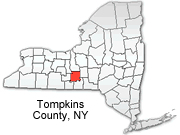Signs of Use
Changes in behavior are the clearest indication that a teen might be using alcohol or other drugs, but it is not always easy to know the difference between drug use and typical adolescent development. Teenagers who use no drugs also wish to be alone, spend long hours asleep, become secretive, have health problems, etc.
Further, experimenting and gradually developing use may be hidden for a long time with few signs until you find some evidence. You can scroll down to read each section, or click to go directly to the one you want.
Signs and symptoms
Unfortunately, prevention is not always enough. Parents need to monitor their teens and be aware of possible indicators of substance use. The following is a list of signs and symptoms which are POSSIBLE signs of a substance use problem although they may also signal a variety of other problems.
- Change in health, grooming
- Dilated or constricted pupils
- Drop in school performance or attendance
- Legal problems
- Items or money missing from home
- Decreased interest in socialization, family, etc
- Not bringing home friends, new friends
- Increased requests for money, or poor reasons for money spent
- Unexplained Injuries
- Illness, shakiness, or tremors
- Depression, poor concentration
- Susceptibility to illness, or fatigue
- Irritability, agitation, paranoia
- Impaired short-term memory
If your teen shows some of these signs, you should take him or her to see a professional such as a social worker. A social worker with experience in dealing with adolescent substance abuse issues can help by working with your teen and family to get treatment and to put a plan in place to help reduce the likeliness of continued use. Look for social workers with experience using Cognitive Behavioral Therapy and Motivational Enhancement Therapy as these are shown to be particularly helpful in treating substance use disorders.
(Source: http://www.helpstartshere.org/kids_and_family/healthy_parenting/
tip_sheets/healthy_parenting_tip_sheet_-_substance_use.html#warning)
(back to top) (back to For Parents)
How to Respond to Evidence
Evidence might include:
- alcohol, mixers, empty bottles
- empty cough syrup bottles
- missing alcohol from your own fridge or cupboard
- smoky burning odor, rolling papers, eye drops, butane lighters, pipes, marijuana (looks like oregano), cigars, cigarettes
- inhaling products: nail polish, white-out, cleaning products, paint thinner
If you've caught your child using alcohol or other drugs or “holding” them for a friend, you might be speechless. Worse yet, you might want to lash out with harsh words. If you feel angry or that you may be out of control at that moment, give yourself a cooling-off period before you talk to your child. The next step, experts say, is to let your child know that you do not approve of drug use or possession.
Starting the conversation The following phrases work to get good communication going:
“Let's talk about how you got these drugs and the impact of what you've done.”
“I'm really disappointed. You know I don't approve of drug use. I especially don't approve of you using drugs.”
“Iím going to stand by you and always love you and guide you, but I do not want you taking drugs. I donít want you making the wrong choice and then have bad things happen in your life.”
Seeking professional advice You may want to ask a counselor, social worker, or doctor for advice. Two agencies in Tompkins County have counselors you could speak with about your concerns and questions about what you should do. They will keep the conversation confidential. Both agencies can conduct evaluations of your child and offer individual and group counseling programs for young people:
Alcohol and Drug Council of Tompkins County www.alcoholdrugcouncil.org
Cayuga Addiction Recovery Services (CARS) www.carsny.org
There are also social workers, therapists and psychologists who specialize in treating adolescents and/or substance abuse. The Mental Health Association in Tompkins County can provide current information on those professionals. Their Therapist Guide is on their website: www.mhaedu.org
(Primary Source: Keeping Your Kids Drug-Free; Parents: the Anti-Drug, www.TheAntiDrug.com)
Support from schools Parents should expect school personnel to be alert to signs of drug use and welcome notification of a suspected problem. Many times school staff are the first to become aware of changes in school performance. All schools have social workers who can give advice and make suggestions about drug counseling services in the community. TST BOCES has a drug prevention and intervention program in some middle and high schools in Tompkins County.
If you discover that your child got drugs while at school or at school activities, you may decide that telling the principal is the best thing to do.

